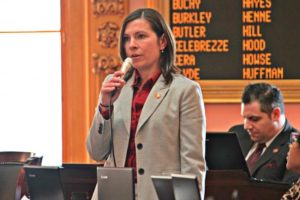Alfonso Guise bought his home on South Champion Avenue more than 40 years ago and remembers seeing language in the deed saying the house could not be sold or leased to a negro or mulatto.
Guise says he didn’t think much of it at the time.
“We had already purchased the house, so I didn’t think anyone would come back and say we couldn’t live here because of this in the deed,” Guise said.
But Guise says the language is offensive and he would like to see it taken out of his deed.
State Rep. Hearcel Craig and Franklin County Recorder Danny O’Connor hope to make that happen. They have teamed up to promote a state legislative proposal to give property owners the freedom and county recorders the authority to redact the discriminatory language from their online deeds. O’Connor says there are at least 5,000 deeds on file that could contain discriminatory language.
“I believe there is a way to balance remembering the darkest moments in our country without allowing relics of discrimination and injustice to eclipse the progress we have made by working together,” Craig said. “This language undermines our strides, advancement and progress as a community and nation. Redacting it is a small, but simple step we can take to further thoughtful dialogue within our communities while showing would-be residents and businesses that we are not stuck in shadows of our past.”
Read and watch the whole story from NBC 4 here.



